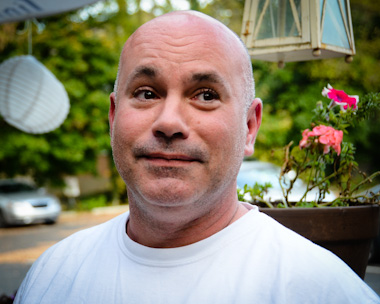Though he traces his roots back to Tyrone and Down, Jim Lockhart has never been to Ireland. The “Port Richmond born-and-bred” carpenter and former Ancient Order of Hibernians president (AHO Div. 87) will be making his first trip in July to attend a friend’s wedding. But since he was a 10-year-old walking with his mother on a picket line “in front of British Airways or Gimbels, I can’t remember which” to protest British treatment of the Irish in Northern Ireland, he’s known he has Irish Republican blood coursing through his veins.
It was brought home to him again a few years ago. “One of our [AOH Div, 87] members brought some literature in about the Friends of Irish Freedom, an organization that helps the families of Irish political prisoners,” he recalled. “We’re always discussing Irish politics and current events at the hall and some of us thought this was something our guys could get into.”
Lockhart contacted the head of the organization in New York. FOIF was founded in 1916—the time of the Easter Uprising–to support Irish Republican prisoners and their families, though by the 1950s the group had virtually vanished. It was revived in the late 1980s when there was a split in the Irish Republican movement, specifically Sinn Fein, with one group (Provisional Sinn Fein) becoming part of the power-sharing administration in Northern Ireland and the other (Republican Sinn Fein) refusing to reject violence as a means to bring about a unified Ireland.
Lockhart, a voracious reader of books on Irish history and politics, understood the fine line between supporting needy families and funding violence. “Some of these prisoners belong to groups on State Department terrorist lists,” he acknowledges. “What I liked about Friends of Irish Freedom is that it’s a non-political group. The money goes directly to the kids, wives, mothers, and families of these men and women, many of them breadwinners, and not to the prisoners themselves. It’s actually placed directly into their hands, tucked into a Christmas card.”
So, three years ago, he organized a beef-and-beer night to help raise funds for the FOIF’s annual Christmas Gift drive, which for many years was aided by Irish civil rights leader and nun, the late Sister Sarah Clarke as well as the Tyrone Prisoners Dependents Fund, and others in what was essentially a “no questions asked” way—a prisoner’s political affliliation wasn’t a consideration.
The third annual benefit is being held on Saturday, October 19, starting at 2 PM, at Bobby T’s Cigar Bar in Port Richmond. Tyrone-born musician Raymond Coleman will be performing and there will be a buffet, raffles, and door prizes.
One of the beneficiaries will be the family of Sharon Rafferty, a 38-year-old single mother of two from Pomeroy, County Tyrone, who is being held in prison on charges of “directing terror” after wiretaps caught a phone conversation in which she spoke with a man named Sean Kelly about, among other things, targeting police officers and the need for firearms training and financing an organization—in this case, the IRA. Her two children are living with her mother, Lockhart says.
Another, Stephen Murney of Newry, County Down, a member of the Republican group Eirigi, was arrested for collecting and distributing information that may be of use to terrorists—he photographed police at political protests and posted them on Facebook. And although the judge in his case questioned the validity of the charges—in one published report, Murney’s attorney told the court that his client was taking the photos to bolster accusations of police harassment– he offered bail only if Murney never returned to Newry or lived at home with his wife and children. “He has two young boys,” says Lockhart.
Americans, says Lockhart, would be horrified at what’s permitted under the British legal system—like the use of “secret evidence” that’s kept from defense attorneys and the revocation of parole (known as license in Northern Ireland) of former political prisoners who are held without charge or trial. Before his arrest, Lockhart says, Eirigi spokeman Murney was stopped and searched as much as 40 times a week “every week.” But politics is one thing, and children are another, he points out.
“With their mothers and fathers gone, these children go without,” he says, “so we try to help.”

